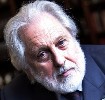Oscar-winning film producer Lord Puttnam has warned of a “worrying fall in investment” in arts, news and drama on television ahead of a new inquiry he will spearhead into the future of UK broadcasting.

The Labour peer and former Channel 4 deputy chairman spoke out with the future of the BBC uncertain as part of its 10-yearly charter renewal and the prospect of privatisation looming over Channel 4.
Puttnam will chair an independent inquiry set up by Goldsmiths, University of London, to look into the future of public service broadcasting and the entire TV landscape in the age of on-demand services such as House of Cards broadcaster Netflix.
“Public service broadcasters remain at the heart of our broadcast landscape in the UK but we are seeing a worrying fall in investment in key areas such as arts, news and drama as well as the tendency for younger audiences to migrate to new digital platforms,” said Puttnam.
“We now find ourselves in a situation where new players like YouTube and Vice are able to complement some of the work of traditional public service broadcasters [such as the BBC, ITV and Channel 4].
“So surely the time has come to reconsider exactly what we mean by ‘public service’ content and consider new the regulatory structures that will ensure the UK public continues to be served by high-quality, original free-to-air television.”
The new inquiry will hold a series of events beginning next month and ending with the publication of its findings in June next year.
It will run parallel to the debate around the BBC, with the government’s white paper on the future of the corporation expected in the spring next year after the green paper published in July.
BBC director general Tony Hall will say before the end of this year where he will look to make some of the savings to meet the £700m cost of free licence fees for the over-75s, taken on by the BBC after its latest funding settlement.
The government is also examining the possible privatisation of Channel 4, revealed after an official was photographed entering Downing Street with a document outlining options for a sell-off.
Puttnam, deputy chair of Channel 4 from 2006 to 2012, has been a staunch defender of the broadcaster in the past but has also said its remit needed to be updated.
Ruling himself out of the chairmanship of the BBC in 2007, Puttnam said: “As an institution it is far from perfect, but it does continue to offer the possibility of an eventual victory for sanity over nihilism in the evolution of the nation’s media output.”
Des Freedman, professor of media and communication studies at Goldsmiths, who will lead the inquiry alongside Lord Puttnam, said: “We want to make sure the wider public service broadcasting environment is not marginalised by the very necessary focus on the BBC and charter review.
“We want to look at the whole landscape of television, not least the future of Channel 4 and the contribution made by new players. We want to make a contribution to the debate [about the BBC] and pick up some of the ideas as they emerge, particularly from the white paper.”
Public service channels continue to account for the majority of viewing and spending on original content in the UK. However, real-terms investment in public service content is declining, prompted partly by cuts at the BBC, and the amount spent on sports rights in the UK has soared.
Inquiry partners include the British Academy, Bafta, Vice, the Hansard Society and the Guardian.
Media regulator Ofcom published the results of its own public service broadcasting review in July. It said broadcasters were failing to reflect minority groups on TV, with more than half of black people, disabled people and lesbian, gay and bisexual people saying they are underrepresented.
It also identified issues with the way people in Scotland, Wales and Northern Ireland saw themselves represented on screen.
Puttnam, the producer of films including Chariots of Fire, Bugsy Malone and The Killing Fields, was one of the key players in the debate around the 2003 Communications Act. He described television as a “delicate ecology”.
Source- The Guardian; John Punkett; 26/10/15


